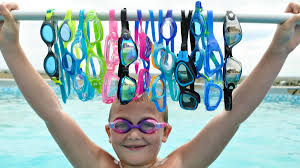Use of Swimming Goggles
- Glynis Sheppard
- Jun 26, 2024
- 2 min read
I personally always swim with goggles on, but I can also swim without them, and I feel this is very much down to the individual. The advantages of wearing swimming goggles during prolonged swimming activity—such as reducing or preventing eye irritation, improving vision through the water, and addressing medical needs—are well recognized and supported by the STA. However, if the pool water is maintained in good condition, it should not be necessary to wear goggles if swimmers are in the water for only short periods, such as during a beginner's swimming lesson.
The use of goggles is not without its downsides:
Many swimming teachers, supported by much of the literature on the teaching of swimming, have concerns about goggles being worn by children learning to swim. Part of the learning experience involves dealing with splashes to the face, the ability to open eyes underwater, and swimming with confidence while immersed. These skills are crucial for a child’s ability to cope in a water-related incident in natural bodies of water like canals, ponds, or rivers.
Additionally, there are safety concerns related to the goggles themselves. There is a history of eye accidents resulting from goggles made of glass or breakable plastics, and from improper use when putting on or taking off goggles. There is a British Standard for the manufacture of goggles, which includes instructions for safe usage and handling to prevent accidents.
Not all goggles provide a watertight fit, and in a teaching situation with small children, valuable lesson time can be lost trying to achieve a proper fit that minimizes leaks.
While it is difficult to provide guidelines that cover all situations, the advice from the STA is as follows:
1. **Encourage Learning Without Goggles:** There are good reasons why swimming goggles should not be worn during swimming lessons. Children and their parents or carers should be informed of these reasons, and children should be encouraged to participate in lessons without goggles.
2. **Exceptions for Medical Reasons:** It is recognized that some children may need to wear goggles for medical or associated reasons in order to participate. In these cases, carers and parents should:
- Only purchase goggles that meet British Standards.
- Ensure that the goggles fit the child correctly.
- Provide the child with adequate instruction on fitting and adjusting the goggles before participation.








Comments